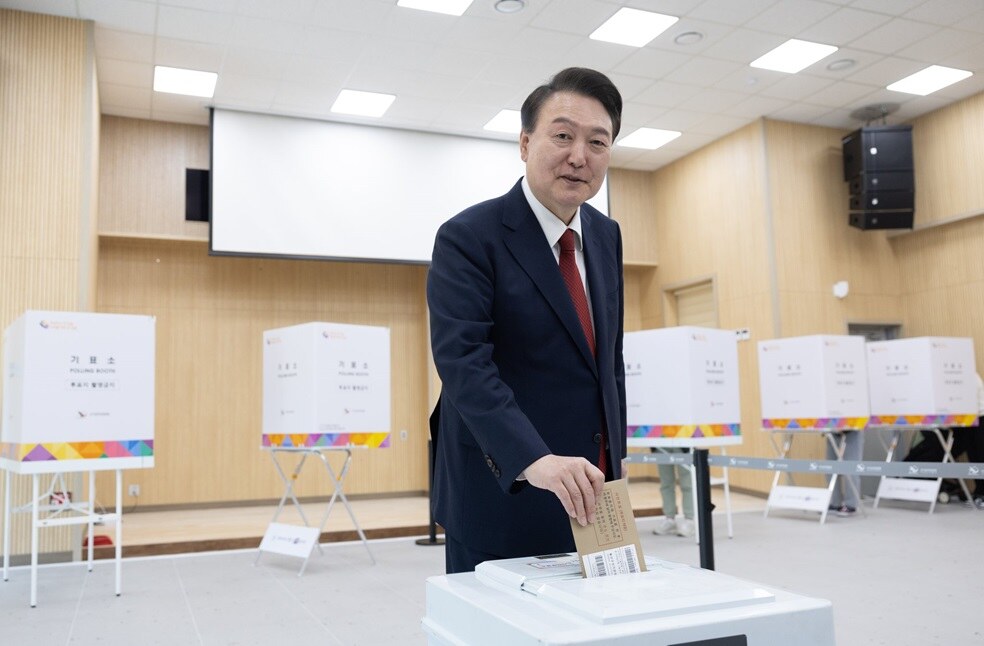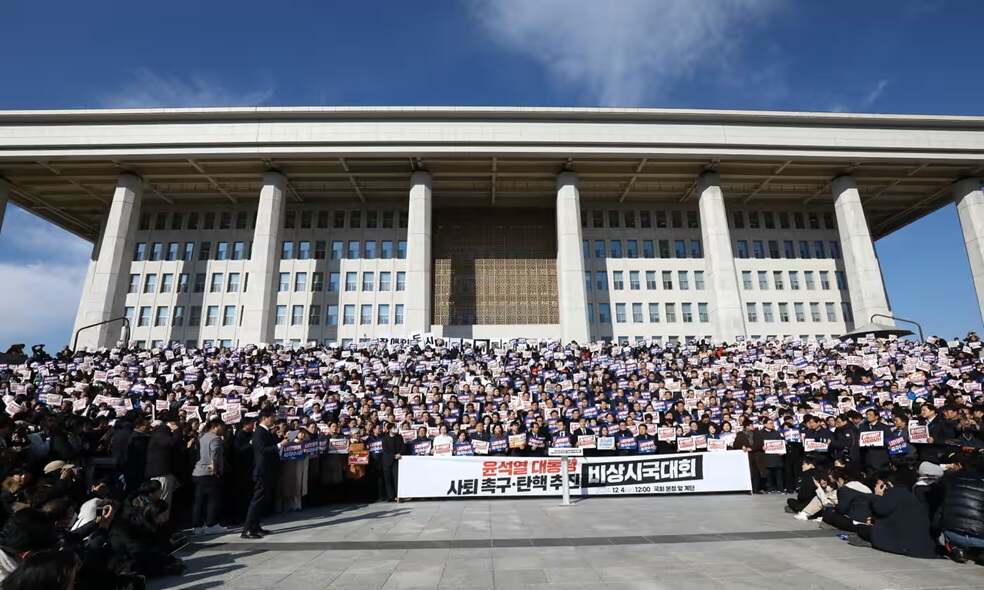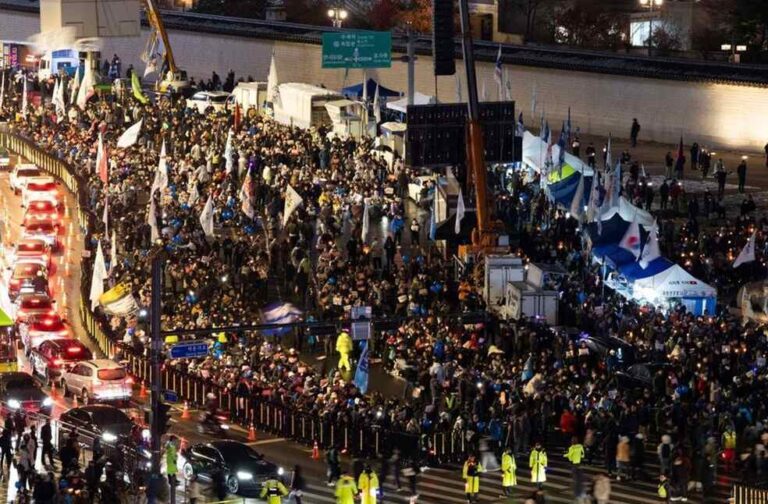Seoul: The sudden declaration of martial law by South Korean President Yoon Suk Yeol has plunged the nation into its most significant political crisis in decades.
The controversial move, announced during a live television address, was reversed just six hours later following an unprecedented standoff with parliament, which unanimously voted to block the decree.
The fallout has been swift and severe, both domestically and internationally. Swedish Prime Minister Ulf Kristersson, scheduled for a summit with Yoon, postponed his visit, citing “recent developments.”
The United States, a key ally, indefinitely delayed Nuclear Consultative Group (NCG) meetings and related military exercises, signalling serious concerns.

The martial law declaration, aimed at banning political activities and imposing media censorship, was met with immediate resistance. Armed troops attempted to secure the National Assembly in Seoul, but lawmakers gathered and, with 190 of 300 members present- including 18 from Yoon’s own People Power Party- voted unanimously to rescind the order.
Protesters rallied outside parliament, chanting “We won!” in celebration of the decision.
South Korea’s largest union coalition, the Korean Confederation of Trade Unions, has called for a nationwide strike demanding Yoon’s resignation, intensifying public dissent.
Opposition lawmakers have announced plans to propose an impeachment bill against Yoon, citing his handling of the crisis. If the bill passes with a two-thirds majority, it will trigger a constitutional court trial to decide Yoon’s fate. Meanwhile, the president’s ruling party has urged Defence Minister Kim Yong-hyun to step down and called for the resignation of the entire cabinet.

Yoon’s martial law declaration has also raised alarms among South Korea’s allies. The crisis cast uncertainty over a potential trilateral meeting between defence officials from South Korea, Japan, and the US, crucial for strengthening regional security.
The crisis in one of Asia’s leading democracies underscores the fragility of political stability and the challenges of governance in an increasingly polarised world.



